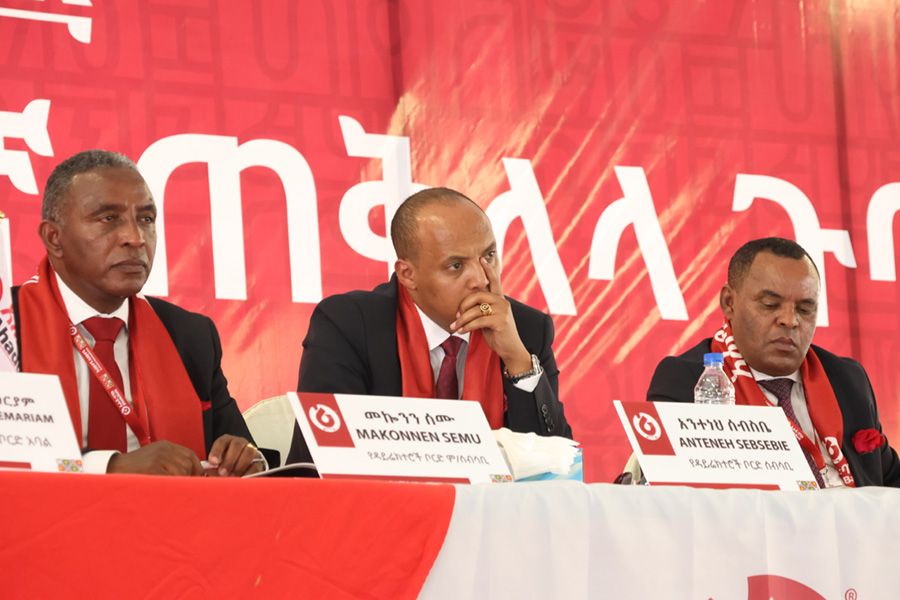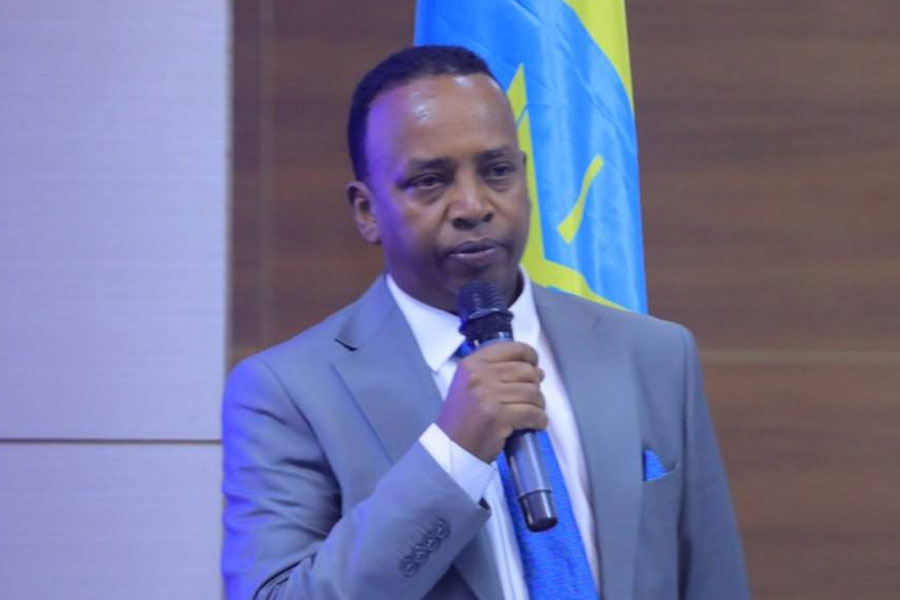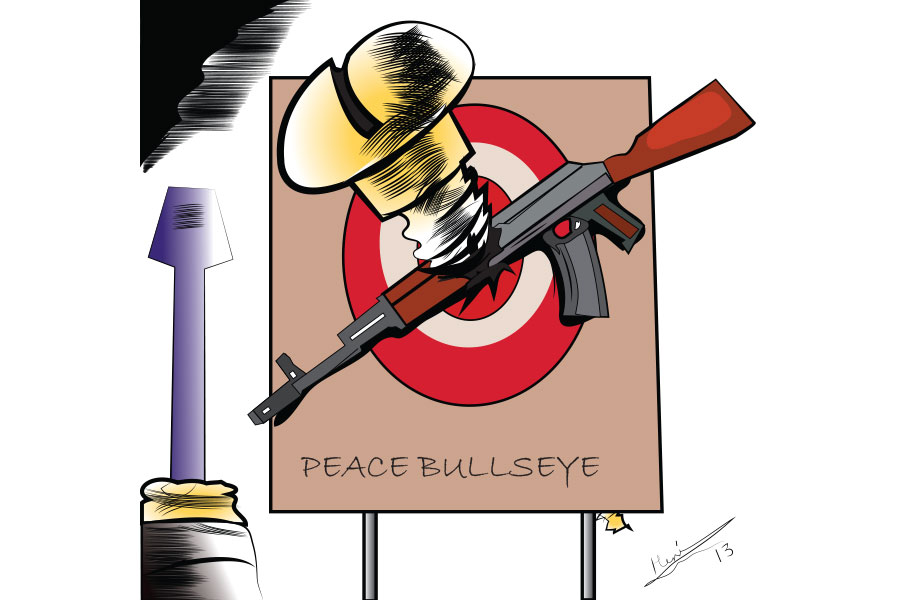
News Analysis | Nov 24,2024
Oct 30 , 2022.
Africa's brutal war in the continent's largest country - in population - continues to rage unabated. This week, the civil war marks its second commemoration.
The carnage it resulted, the suffering it caused, and the destructions it brought in a short time are too horrendous to contemplate. It ought to have been avoided and remains regrettable. Tens of thousands are in grief and anguish, and a country is in despair. Ending human suffering from organised violence should preoccupy the minds of sane people.
Almost two years since the start of the war, a watershed moment in the long, arduous and irksome road to peace began last week. Delegates of the warring sides (several known to each other for decades while serving the same government) have had a face-to-face encounter that was made public since November 2020. Nonetheless, there were engagements between representatives from both sides held in other countries that have become public knowledge since.
A Troika of former heads of state has convened a table in Pretoria, South Africa's political capital, for peace talks to end the war in Tigray and the neighbouring states. It is a moment of respite from years of war drums, mobilisations and nightmares for the civilian population caught up in the crossfire.
The hopes of tens of millions rest on the shoulders of Olusegun Obasanjo, a former president of Nigeria who now serves as the African Union's envoy to the Horn of Africa. He is joined in the mediation team by Uhuru Kenyatta, former president of Kenya, and Phumzile Miambo-Ngcuka, former deputy president of South Africa, the host country. The symbolism can be noted in their representations of the continent from the west, east and southern parts.
The African Union (AU), the lead institution owning the peace process, had its Chairperson, Musa Faki, meet with Anthony Bilinken, America's secretary of state, in Ottowa, Canada, last week while the delegates were ironing out the agendas to move forward. Beyond providing logistics and facilitating the meeting venues, it is clear that the US government has employed its political and diplomatic leverages to compel the two sides to sit for talks. It has its envoy, Mike Hammer, attend the Pretoria Round.
Ethiopia's federal government has its delegation led by Redwan Hussien, national security advisor to the Prime Minister; and, Getachew Reda led the negotiating team from Tigray. There was reason to assume the initial encounters went smoothly. The South Africans did an impressive job in hosting their estranged guests, soothing them to engage one another without a shouting match that could have flared up outside the closed doors.
Understandably, the talks were held in complete secrecy. It is possible that initial rules of engagement were agreed upon not to make unilateral public statements or post on their social media accounts. However, the quiet and silence could reveal that the talks were held constructively, and there was no "collapse" to be announced. They might as well issue a joint statement after the talks ended on October 31. It is good news for those whose hopes hinged on the outcome of the Pretoria Round.
Whether this round is considered a success or failure depends on the various groups' expectations.
An intricate and complex conflict with several dimensions, such as Ethiopia, hardly gets resolutions anytime soon. The conflict is a war of conviction by political groups who hold polarised world visions on the state of Ethiopia. Inherently, it is a battle relentlessly fought over the soul of the Ethiopian state; compromise and settlement lie in the constitution and the order it ascertains. Coming to terms with addressing these vexing issues will undoubtedly become a protracted affair. The gambit would be to find the commitment from all sides in the conflicts to having their disputes in a rule-based, institutional and peaceful engagement and platforms.
But first, the guns need to get silent.
The wars in Tigray, as well as Amhara and Afar neighbouring states, have left hundreds of thousands dead and driven millions away from their homes. As the talks were progressing in Pretoria, machine guns and artillery weapons were growling in the mountains of Tigray as the buzzing sounds of drones traumatised civilians residing in towns. The resurgence of heavy warfare would aggravate the already catastrophic situation to a hellish state. For millions of citizens sieged in Tigray, life has become unbearable. It should not have been a hole in a collective consciousness.
The prospect for the country remains desperate. The United Nations office for humanitarian assistance disclosed that nearly 22 million people were provided with emergency assistance in the first six months of this year for displaced people due to war and drought. Over three billion dollars is needed to continue feeding them, yet, the international community could only provide its commitment for one-third of this requirement.
The war's toll on the economy has become apparent as more people began to feel it in their pockets. The macroeconomic outlook is grimier.
The balance of payments is teetering. According to the IMF, the foreign exchange reserve has plunged to an all-time low, sufficient only to cover nearly 20 days of imports. The last time the country's coffer was depleted to such a level was in the mid-1991, after the fall of the military Marxist rule. Two weeks ago, macroeconomic policymakers were compelled to impose caps on importing hundreds of merchandise.
Economic growth measured in GDP is less than half the average of the 15 years since the mid-2000s; the federal budget deficit is at a record high; and how policymakers try to finance it causes inflation that brings havoc to households. This appears to be an era when people struggle not to fall down the income ladder.
To end the carnage and begin the long march to economic recovery would be defined by the outcomes of the Pretoria Round. The crucial moment can be ceased by the parties to agree on a cessation of hostilities to put their respective forces where they stand. This would give breathing space to the international and domestic aid agencies to deliver indispensable medicine and food to a captive population. It would also be remarkable to the millions of citizens in Tigray to see a deal that could lead to the resumptions of essential services in trade, water, electricity, telephone and banking.
The Pretoria Round could be hailed as a towering success if it achieves a deal on these issues. They hopefully can regenerate a level of confidence between Addis Abeba and Meqelle to take the talks to the next level: agreement on a permanent ceasefire. The latter would pave the way for negotiated settlements on the substantive issues that instigated the war. The realisation that not every problem finds its solution using brute force was affirmed in Pretoria last week. Pretoria signified the understanding that there would be no winner in these wars and that the only way out for durable peace was talking.
It is unlikely that Pretoria will neither be the first nor the last venue to host these talks. There could come several of them before durable peace is achieved through negotiated settlements, accountability and reconciliations. These lofty ideals will test the resolve and wisdom of the Troika and the political midwives as much as they demand the determination of a population for peace.
However, the elephant in the room remains the Eritrean government's role and its forces' presence in this war. In the absence of a viable strategy to deal with the "Eritrean dilemma", Addis Abeba and Meqelle would have any option but to be stuck in a quagmire. It would be wise for the Troika to be mindful of this impasse.
PUBLISHED ON
Oct 30,2022 [ VOL
23 , NO
1174]

News Analysis | Nov 24,2024

Commentaries | Sep 18,2021

Commentaries | Dec 21,2019

Advertorials | Apr 10,2023

Editorial | Jul 31,2021

Fortune News | Jul 08,2023

Commentaries | Dec 23,2023

Commentaries | Oct 23,2021

Radar | Jun 15,2025

Editorial | Jul 03,2021

Photo Gallery | 174619 Views | May 06,2019

Photo Gallery | 164843 Views | Apr 26,2019

Photo Gallery | 155049 Views | Oct 06,2021

My Opinion | 136695 Views | Aug 14,2021

Dec 22 , 2024 . By TIZITA SHEWAFERAW
Charged with transforming colossal state-owned enterprises into modern and competitiv...

Aug 18 , 2024 . By AKSAH ITALO
Although predictable Yonas Zerihun's job in the ride-hailing service is not immune to...

Jul 28 , 2024 . By TIZITA SHEWAFERAW
Unhabitual, perhaps too many, Samuel Gebreyohannes, 38, used to occasionally enjoy a couple of beers at breakfast. However, he recently swit...

Jul 13 , 2024 . By AKSAH ITALO
Investors who rely on tractors, trucks, and field vehicles for commuting, transporting commodities, and f...

Oct 12 , 2025
Tomato prices in Addis Abeba have surged to unprecedented levels, with retail stands charging between 85 Br and 140 Br a kilo, nearly triple...

Oct 12 , 2025 . By BEZAWIT HULUAGER
A sweeping change in the vehicle licensing system has tilted the scales in favour of electric vehicle (EV...

A simmering dispute between the legal profession and the federal government is nearing a breaking point,...

Oct 12 , 2025 . By NAHOM AYELE
A violent storm that ripped through the flower belt of Bishoftu (Debreziet), 45Km east of the capital, in...